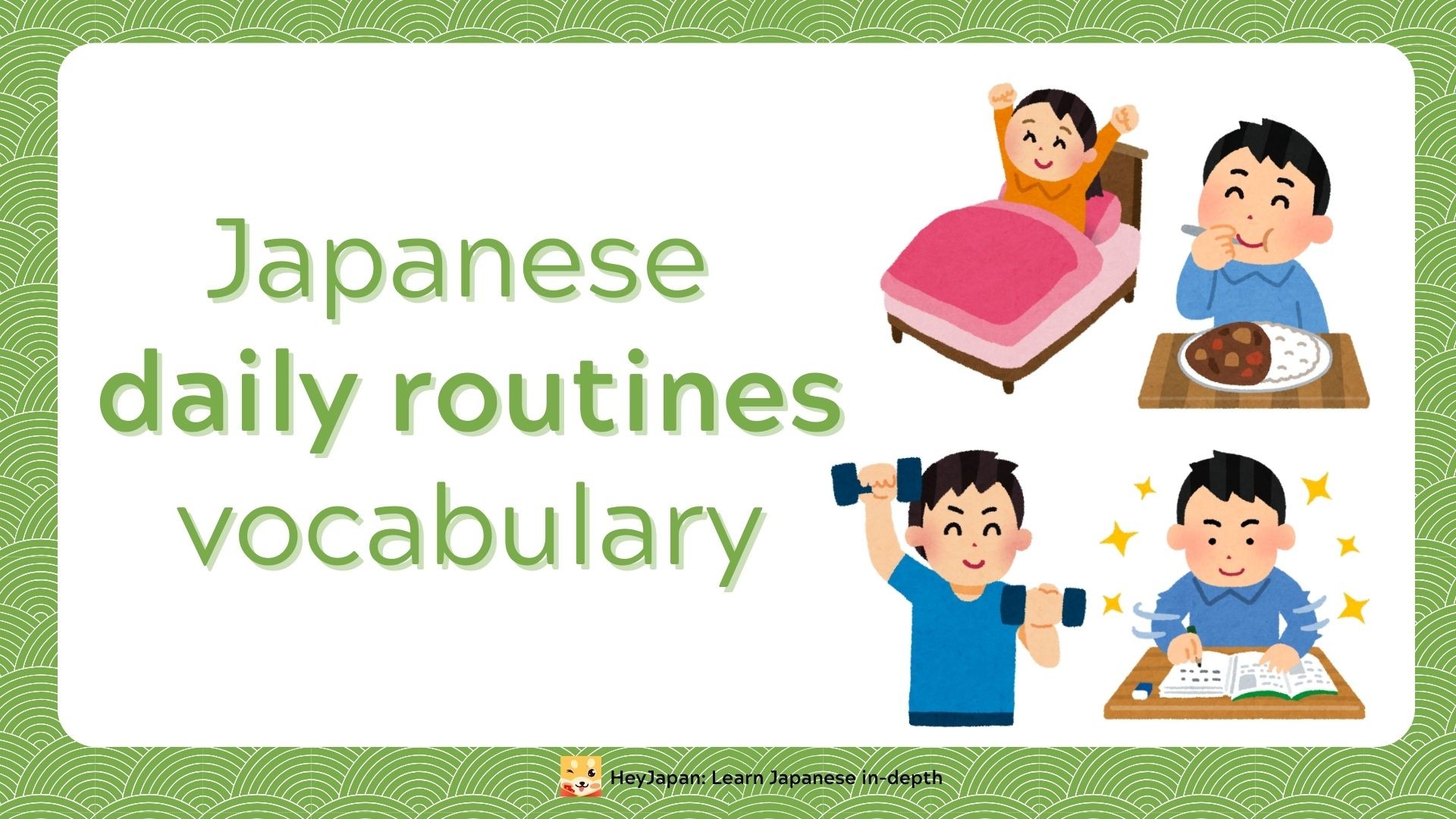- Essential Daily Routine Vocabulary in Japanese
- Times of the Day in Japanese
- Useful Phrases for Daily Routines
- Adverbs for Talking About Frequency
- Daily Routine Vocabulary for Specific Situations
You're talking about your morning routine, your workday, or your evening habits? Having the right vocabulary can help you express yourself clearly. In this guide, we’ll cover essential Japanese terms related to daily activities, times of the day, and useful phrases to describe your routine.
Essential Daily Routine Vocabulary in Japanese

To begin, let's look at some key terms and phrases you’ll use to talk about your daily routine:
Basic Daily Activities
- 起きる (Okiru) – To wake up
- 寝る (Neru) – To sleep
- 食べる (Taberu) – To eat
- 飲む (Nomu) – To drink
- 勉強する (Benkyou suru) – To study
- 働く (Hataraku) – To work
- 運動する (Undou suru) – To exercise
- 休む (Yasumu) – To rest, take a break
- 洗う (Arau) – To wash (hands, face, dishes, etc.)
- 歩く (Aruku) – To walk
- 掃除する (Souji suru) – To clean
- 買い物する (Kaimono suru) – To go shopping
Times of the Day in Japanese

Knowing how to express different times of the day is essential for talking about your routine. Here are the most common time-related terms in Japanese:
- 朝 (Asa) – Morning
- 午前 (Gozen) – A.M. (before noon)
- 昼 (Hiru) – Noon, afternoon
- 午後 (Gogo) – P.M. (after noon)
- 夕方 (Yuugata) – Evening
- 夜 (Yoru) – Night
- 深夜 (Shinya) – Midnight
You can also combine these time-related words with verbs to describe specific activities at certain times, like 朝食を食べる (Choushoku wo taberu) – To eat breakfast in the morning or 夜に寝る (Yoru ni neru) – To sleep at night.
Useful Phrases for Daily Routines
- 毎朝何時に起きますか? (Mainichi nanji ni okimasu ka?) – What time do you wake up every day?
- 今日は何をする予定ですか? (Kyou wa nani wo suru yotei desu ka?) – What are you planning to do today?
- 朝ごはんは何を食べましたか? (Asagohan wa nani wo tabemashita ka?) – What did you eat for breakfast?
- 今日は早く寝るつもりです (Kyou wa hayaku neru tsumori desu) – I plan to go to bed early today.
- お昼ご飯に何を食べましたか? (Ohirugohan ni nani wo tabemashita ka?) – What did you eat for lunch?
- 毎日運動しますか? (Mainichi undou shimasu ka?) – Do you exercise every day?
Adverbs for Talking About Frequency
Adverbs help add context and clarity to your sentences when talking about your routine. Here are some adverbs you can use:
- 毎日 (Mainichi) – Every day
- よく (Yoku) – Often
- たまに (Tama ni) – Sometimes
- 時々 (Tokidoki) – Occasionally
- 全然 (Zenzen) – Never (used with a negative verb)
- 毎週 (Maishuu) – Every week
- 毎月 (Maitsuki) – Every month
For example: 私は毎朝コーヒーを飲みます (Watashi wa mainichi koohii wo nomimasu) – I drink coffee every morning, or 私はたまに夜に映画を見ます (Watashi wa tama ni yoru ni eiga wo mimasu) – I sometimes watch movies at night.
Daily Routine Vocabulary for Specific Situations
For certain routines or activities, there are specific terms you’ll need to know. These include:
- 仕事 (Shigoto) – Work
- 学校 (Gakkou) – School
- 通勤 (Tsuukin) – Commuting to work
- 帰宅 (Kitaku) – Returning home
- 会議 (Kaigi) – Meeting
- 休憩 (Kyuukei) – Break
- 夜食 (Yashoku) – Late-night snack
For example: 仕事は何時に終わりますか? (Shigoto wa nanji ni owarimasu ka?) – What time does your work finish?
Learn more:




 daily routine Japanese vocabulary .jpg)






